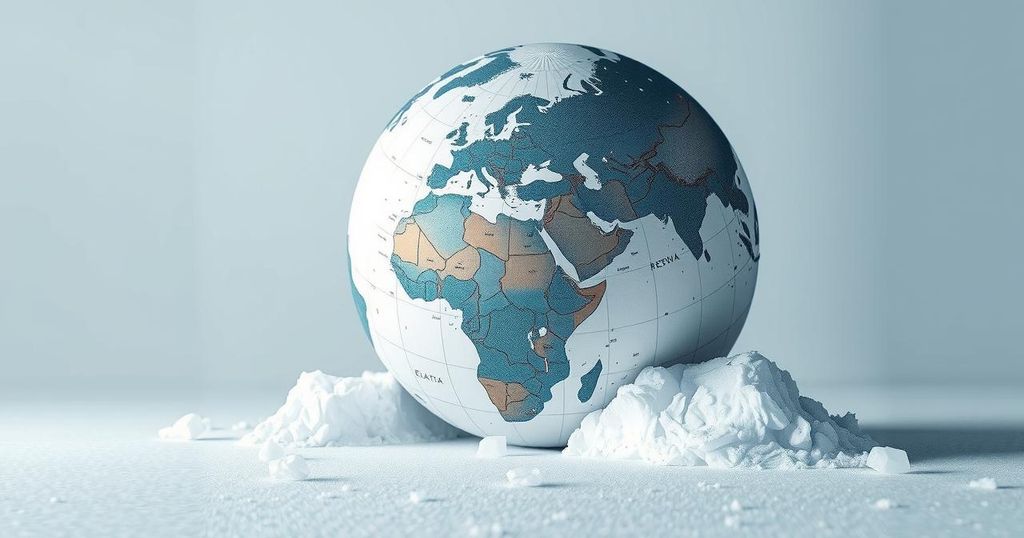The article discusses the impact of President Trump’s executive order freezing U.S. foreign aid, particularly affecting Africa. Organizations like the Platform For Youth and Community Development in Zimbabwe abruptly halted operations, while PEPFAR, a major HIV/AIDS program, faces funding uncertainty. The aid freeze threatens the delivery of critical health services, especially in conflict regions like Congo and Sudan, putting millions at risk of losing life-saving support.
Africa was braced for the implications of President Donald Trump’s “America First” policy, anticipating a reduced priority for their needs in U.S. foreign aid. After Trump’s executive order freezing almost all foreign aid, many organizations, including those focused on combating child marriage in Zimbabwe, were abruptly halted. The cessation of funding severely hampers projects critical to health and education across the continent, highlighting the fears of leaders and NGOs alike.
Despite global backlash leading to some exemptions from the freeze, much of sub-Saharan Africa remains vulnerable, as the aid assessment process could keep funds on hold for up to 90 days. In the previous year, the United States contributed over $6.5 billion in humanitarian assistance to the region, and the halt has left organizations struggling to operate and continue their vital work.
The President’s Emergency Plan for AIDS Relief (PEPFAR), a significant program in combating HIV/AIDS that has saved over 25 million lives primarily in Africa, is now under threat. With U.S. funding vital to South Africa’s response to HIV, officials are concerned about the ramifications of aid suspensions, particularly as millions rely on PEPFAR for essential medical treatment.
The immediate impact of the aid freeze is evident, as HIV patients in Johannesburg were turned away from clinics funded by PEPFAR, signaling a disruption in the delivery of life-saving services. Clarity regarding which programs are exempt from the freeze remains elusive, leaving many organizations in uncertainty and at risk of losing funding as a result.
In conflict zones such as eastern Congo and Sudan, humanitarian assistance has been significantly affected. Reports indicate over 1.2 million people in Congo could lack critical support due to the aid freeze, while in Sudan, 600,000 individuals face increased risk of disease outbreaks without the necessary intervention. Overall, these developments underscore the severe implications of the aid freeze for vulnerable populations globally.
The article addresses the concerns surrounding the implications of President Trump’s “America First” policy on foreign aid directed to Africa. It illustrates how a freeze on U.S. foreign aid negatively impacts various initiatives aimed at addressing health and educational challenges, particularly emphasizing programs like PEPFAR, which has been instrumental in the fight against HIV/AIDS. The freeze threatens organizations that depend on these funds to provide essential services, thus placing millions of lives at risk.
In conclusion, President Trump’s aid freeze has placed significant strain on African nations reliant on U.S. assistance. The abrupt halt in funding disrupts vital health and educational services, including programs like PEPFAR that are crucial for managing public health crises such as HIV/AIDS. As organizations grapple with the implications of this freeze, the overall humanitarian landscape in sub-Saharan Africa faces uncertainty and potential crises due to inadequate resources.
Original Source: apnews.com






